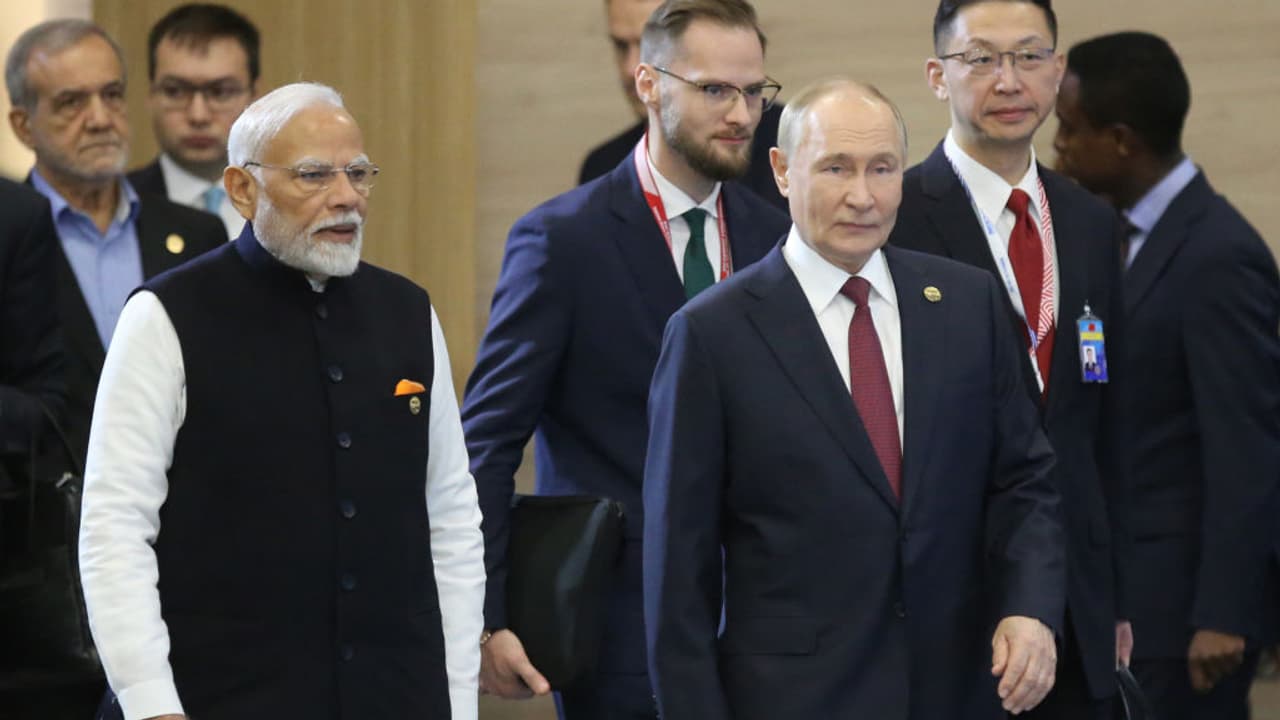A successful summit between US President Donald Trump and Russian President Vladimir Putin could stabilise oil markets, benefiting India’s economy and easing global tensions. However, European nations, aligned with NATO, do not want a deal.
Bengaluru: As Russian President Vladimir Putin and US President Donald Trump prepare to meet in Alaska on Friday, August 15, much of the global attention will be on whether the discussions lead to a meaningful de-escalation of the prolonged conflict between Moscow and Kyiv. However, India would be paying a close attention not just because of the outcome but the direction in which the discussions may proceed. The meeting comes days after Trump signed an Executive Order imposing an additional 25% on imports from India in response to New Delhi’s purchase of Russian oil. The move took the tariffs on India to 50%, which the Ministry of External Affairs (MEA) termed as “extremely disappointing.” India had defended its energy trade policy, stating that its oil imports are driven by market needs and are essential to meet the energy requirements of its 1.4 billion people. “Our decisions on oil procurement are based on market considerations and aimed at securing the country’s energy interests,” the MEA said, pushing back against what it sees as an attempt to pressure India over sovereign policy choices.
India’s Support for Putin-Trump Meet Explained
In a strategic move, India endorsed the meeting between the two leaders almost immediately, despite the hike on tariffs. MEA stated that the summit could pave the way for peace and reiterated Prime Minister Narendra Modi’s stance that “this is not an era of war.” India also expressed readiness to support efforts towards resolving the crisis. For New Delhi, the summit represents a potential turning point in the Ukraine conflict, which could open doors for de-escalation and economic relief. India’s motivation is straightforward: a ceasefire or easing of hostilities could lead to the lifting of sanctions on Russia, helping restore predictable oil flows and keeping energy costs manageable. Given India’s dependence on discounted Russian crude, the country has a direct stake in the outcome.
India has maintained a careful stance throughout the war, neither alienating its historic partner Russia nor jeopardising ties with Western nations. Quietly, India has facilitated backchannel communications between Moscow and Kyiv, aligning with Prime Minister Modi’s repeated calls for diplomacy over warfare. Across the Atlantic, European capitals are far less enthusiastic. Leaders in Berlin, Warsaw, and the Baltic states fear that a bilateral US-Russia deal might marginalise NATO and sideline Ukraine from critical decisions, potentially reshaping the security landscape of Eastern Europe.
For Donald Trump, who has been already vying for the Nobel Peace Prize after staking claim to be the mastermind of several peace negotiations, a successful summit could serve as a high-profile foreign policy achievement. It could also yield strategic benefits such as weakening Moscow’s alignment with Beijing or calming volatile energy markets.
Energy Security and Oil Prices
India has been a major buyer of discounted Russian crude since the conflict began, benefiting from lower prices compared to global benchmarks. But the price gap between Russian oil and other sources has narrowed over the past year. Any resolution that stabilises global oil markets could help ensure price predictability and limit inflationary pressures in India. If tensions persist or escalate, India may be forced to source costlier oil, impacting its import bill and potentially domestic fuel prices. A calmer geopolitical climate could also benefit India’s export sectors, particularly manufacturing, pharmaceuticals, and electronics, by easing global shipping disruptions and reducing uncertainty in supply chains. While some of these sectors are currently outside the scope of additional tariffs, India remains vigilant about potential changes in trade policy stemming from the conflict. Beyond immediate trade and energy considerations, a reduction in global tensions could foster greater investor confidence.
Lower geopolitical risk could provide more room for India’s central bank to focus on growth-supportive measures such as interest rate cuts, rather than reacting to inflation spikes caused by supply shocks. While India’s healthy forex reserves offer some protection, stability in oil prices and global trade flows would strengthen the economy’s resilience.
